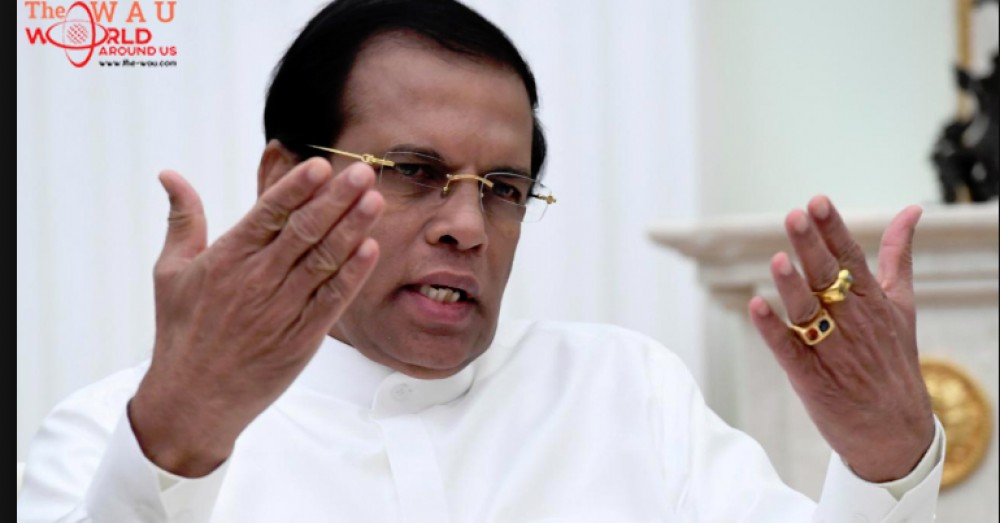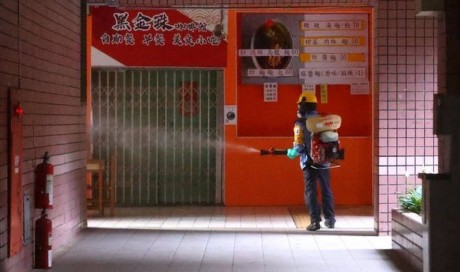Sri Lanka President Maithripala Sirisena is under increasing pressure to uphold the island nation’s constitution and reconvene parliament after his decision to replace the prime minister triggered political turmoil.
Sri Lanka was plunged into the crisis on Friday when Sirisena sacked Prime Minister Ranil Wickremesinghe and swore in ex-president Mahinda Rajapaksa to replace him, breaking up a fragile coalition governing the island.
Wickremesinghe said his sacking was illegal and he maintained that he was still prime minister and had the support of a majority of members of parliament.
“The only way out of this crisis is to resolve who has the majority. Once parliament is summoned, this issue can be resolved,” Wickremesinghe told reporters at the prime minister’s official residence.
Rajapaksa, meanwhile, assumed his duties at the prime minister’s office, about 1 km (half a mile) away.
The crisis has important ramifications in a battle for influence in south Asia between Sri Lanka’s traditional ally India and China, a country that is playing an increasing role in the region.
China, long seen as a supporter of Rajapaksa, has already congratulated him on becoming prime minister.
But India, the European Union and the United States have all urged Sirisena to abide by the constitution.
“We call on the president, in consultation with the speaker, to immediately reconvene parliament and allow the democratically elected representatives of the Sri Lankan people to fulfill their responsibilities to affirm who will lead their government,” U.S. State Department spokeswoman Heather Nauert said in a statement.
Sources in diplomatic missions said most foreign envoys had yet to congratulate Rajapaksa as it could be interpreted as legitimizing the new government while there were still complaints his appointment was unconstitutional.
Rajapaksa was not immediately reachable for comment on Monday.
The crisis has already produced some violence.
On Sunday, Arjuna Ranatunga, petroleum minister in the ousted cabinet, tried to enter his office, leading to clashes in which police said his security guard shot and killed one person and wounded two.
Police arrested Ranatunga, a former captain of the Sri Lankan cricket team, on Monday over the killing. He was later released on bail.
‘PARLIAMENT NOT STREETS’
The speaker of parliament, Karu Jayasuriya, called for differences to be resolved in the legislature.
“If we don’t resolve this in the parliament, some people may try to resolve things on the streets,” he warned.
Later, Jayasuriya met U.S. Chargé d’Affaires Robert Hilton at parliament and discussed the stand-off and reconvening parliament, a source privy to the meeting told Reuters.
A 2015 constitutional amendment diluted the powers of the president, making Sirisena’s action unconstitutional, said Kalana Senaratne, a senior lecturer at the University of Peradeniya.
Sirisena also replaced the heads of three state media organizations.
The turmoil comes at a critical time for a Sri Lankan economy struggling with slow growth and a weakening currency.
If tensions persist, Sri Lanka could struggle to refinance government debt that comes due in early 2019 at an affordable rate, credit rating agency Moody’s said.
The country’s bonds sold off while the rupee fell to an all-time low against the U.S. dollar.
“The president’s sudden appointment of Mr Rajapaksa as prime minister significantly heightens policy uncertainty,” said Matthew Circosta, an analyst at Moody’s Sovereign Risk Group
“Possible social tensions that may unfold in the next few weeks would have a negative impact on the economy.”
India and Western countries have previously expressed concern about Rajapaksa’s ties to China, after he ushered in billions of dollars of investment from Beijing to rebuild the country following the end of a 26-year war against ethnic Tamil separatists in 2009.
That investment has since put Sri Lanka deep in debt and forced it to hand over control of a strategic port to China.
Britain urged thousands of British tourists visiting for a tour of Sri Lanka by the England cricket team to be cautious.
The team plays in Colombo this week.
Share This Post












